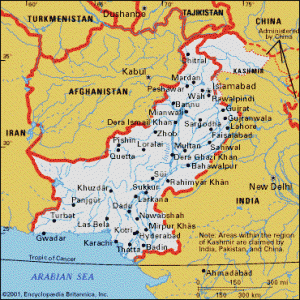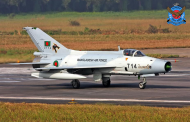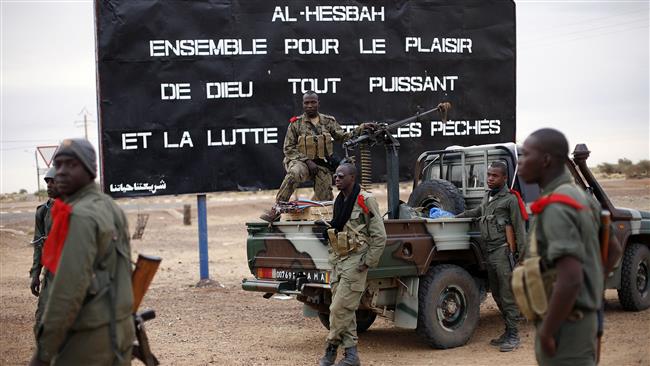 In a Pakistani public park, Sarfraz Shah begs not to be shot.
In a Pakistani public park, Sarfraz Shah begs not to be shot.
He is unarmed but quickly surrounded by paramilitary forces in camouflage cargo pants and Ranger T-shirts.
Shah pleads with the men carrying automatic rifles. “I am helpless,” he cries. “Please do not fire.”
Then, two shots and screams of pain. The crimson of blood colors the ground beneath him.
Shah begs to be taken to a hospital. He bleeds to death.
The chilling scene was captured on video by a local television cameraman and broadcast across Pakistan’s networks. It was the latest in a series of human rights incidents that has horrified the south Asian nation and deeply eroded public confidence in security agencies.
“This kind of anger among the public and even politicians hasn’t been seen before,” said Zohra Yusuf, chairwoman of the Pakistan Human Rights Commission.
“It was the way the young man was brutally shot dead in close quarters,” she said. “And the footage showed very clearly that he was not armed. The footage itself is so crystal clear. It tells the whole story.”
Shah, age 17 and dressed in a dark shirt and jeans, tried to rob people at a fairly new park named in honor of slain former Prime Minister Benazir Bhutto, police say. Karachi police official Rafiq Gul said Shah pointed a pistol and wanted to steal cash and cell phones.
Shah’s gun was confiscated and he was handed over to park security and then to the Rangers, police say.
Shah apparently tried to snatch the Rangers’ guns, Gul said. That’s when the soldiers opened fire.
Thursday evening, Pakistani television stations were abuzz with the shooting. Journalists accused the security forces of serious breaches of human rights.
They brought up the torture and killing of journalist Syed Saleem Shehzad, an expert on al Qaeda killed in late May. Pakistan’s Inter Services Intelligence is suspected in the killing.
Shehzad had told Human Rights Watch about threats he received from the ISI and the global monitoring agency has urged a complete investigation. The spy agency’s reputation had already fallen after the killing of al Qaeda mastermind Osama bin Laden by U.S. forces.
Also in May, police and paramilitary forces in Quetta killed five Chechen citizens who were labeled at the time as suicide bombers but turned out to be unarmed civilians. Yusuf said one of the slain was a woman who was seven months pregnant.
Pakistan’s Supreme Court on Friday ordered transfers for the heads of the Sindh Rangers and the provincial police force, according to Ikram Chaudhry, a senior Supreme Court lawyer.
Chaudhry said the court also ordered hearings in a lower court.
But part of the problem, said Yusuf, is that Pakistanis feel that often, security forces act with impunity without ever having to face justice.
“Almost all go unpunished — they do not face the kind of justice that a civilian would face,” she said. “The question of impunity encourages this kind of trigger happiness.
“Yusuf acknowledged that Pakistan is rife with terrorist incidents and that security forces often must act swiftly.
“They do tend to panic and overreact,” Yusuf said. “They shoot to kill rather than take other measures.”
Interior Minister Rehman Malik vowed justice but tempered his comments about Shah.
“There should be no doubt that this video shows an unjust action,” he said. “Action will be taken against the soldiers, but no one should forget he [the victim] is a criminal. He pointed a pistol at two women and then he tried to rob them.
“There are two things — one, his criminal record, and another, an unjust killing,” Malik said. “I assure the relatives of the victim the investigation will be transparent and neutral and the results will be made public. These are the criminals that create problems for the public; but it does not justify killing like this.
“Shah’s family insisted that the Rangers had killed an innocent man.”
My son was innocent,” his mother said. “They killed him.”
Yusuf said that after Shah’s killing, it will take a lot to restore the trust of the Pakistani public. Nobody, she said, knows anymore whether they will be next.
Source : CNN




































